How to download your location data from Google
2016.07.27.

Introduction
If you're an active user of Google services and a smartphone, chances are that Google is tracking your movements. You can access the data they've collected on you in a couple of ways. Please excuse the repeated use of the words "data", "download", "location", and "service" in this article.
A bit of background
You have a lot of data stored at the various online services that you use, like social media and emails. The good services let you download the data they're storing for you. For one, these downloads can serve as a backup of sorts, were the companies to go under. More importantly, perhaps, they give you this opportunity because feeling like you're not completely locked into them is nice (even if that downloadable data is sometimes hard to shape into a useful form).
Your location data at Google
If you have it enabled, Google tries to keep up with where your devices are going, by logging their location periodically, using cell signals, GPS, and even Wi-Fi. As with all your personal information that you feed into Google, this can seem somewhat (or very) creepy, but you get a couple of cool things in return. Most notably, you get personalized cards based on the places you've visited in Google Now, like travel times, and you can browse a timeline of your recorded location data.
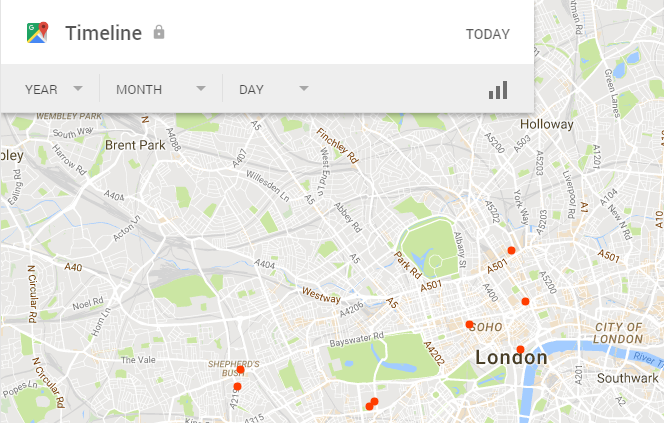
To enable logging your location data, see these help pages for Android and for iOS.
Let's get to the point
Step by step, here we go. You can get started in one of two ways:
If you don't have your timeline open, use this link to get started.
But if you're already at your timeline, you can go to the bottom right corner, where you'll find a cogwheel menu.
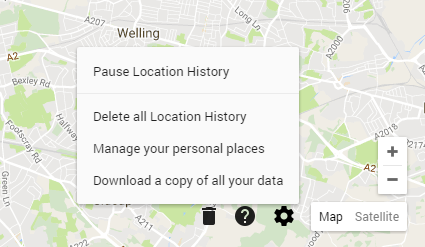
Select the "Download a copy of all your data" option here.
Whichever way you took, you'll be taken to the following page.
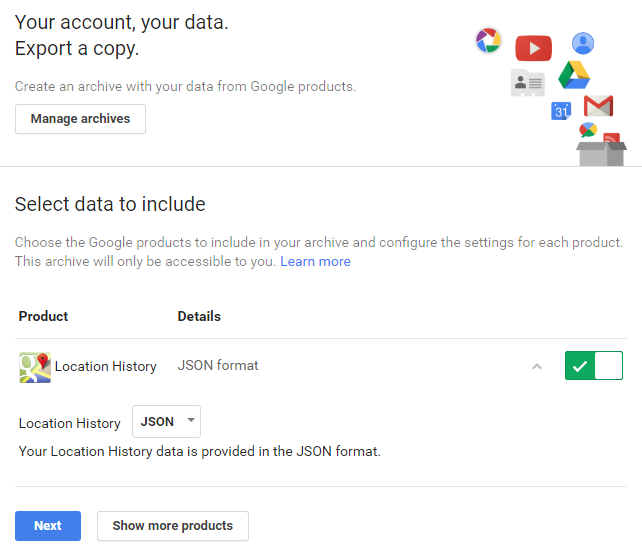
You have a choice of format between JSON and KML, choose whichever is closer to your heart. Click Next.
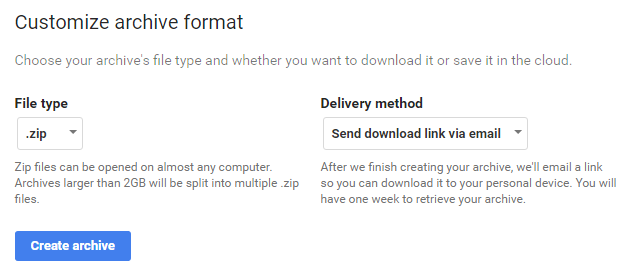
You have a choice of a couple more things here (download link is the simplest), click Create Archive when you're satisfied. You should see the following.
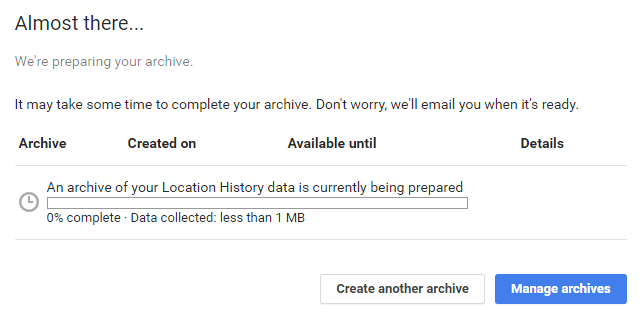
This is the part where you wait. Location data is fairly simple, and not of significant size even if it's been collected for years, so this should take just a few minutes. You'll receive an email when it's ready.
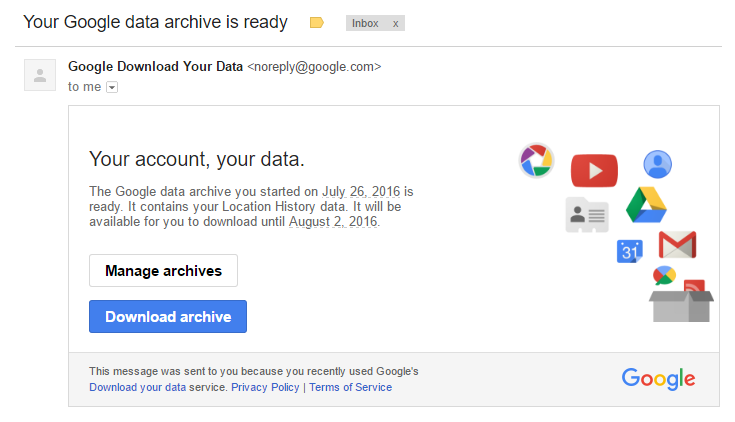
If you request your data multiple times, the archives created for you will be available on the page you get to from the email (they're stored for one week).
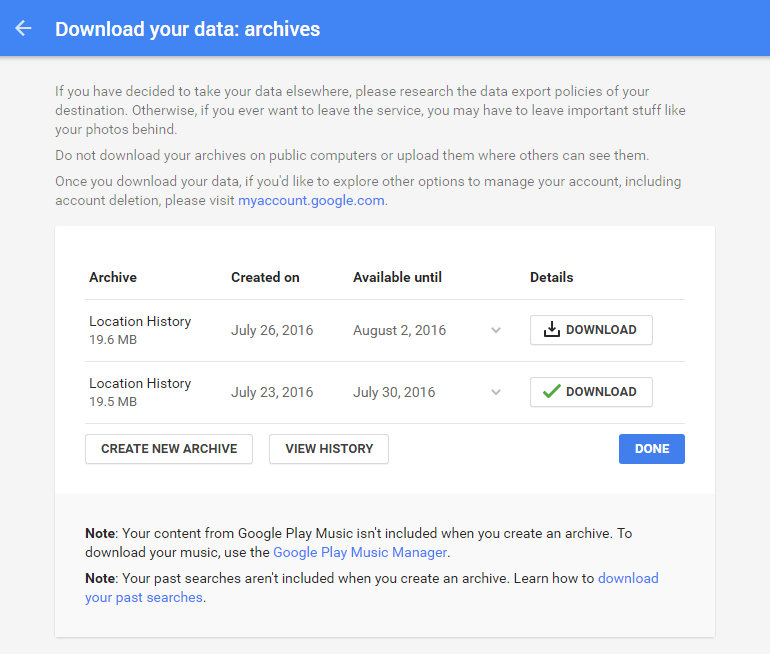
Upon extracting the download, you'll end up with a rather large text file.

You probably won't have much luck trying to read it in a text editor, but you can process it with the appropriate programs (or if you chose the KML format, import it to programs that support it).
But wait, there's more
What you're accessing here is actually a larger service that Google offers, called Google Takeout. There is a lot more than your location data to download here. Emails, calendars, contacts, photos, messages, and even more are available for takeout. Most of the data will be in its most widely used format (iCal, vCard, etc.), and sometimes you get a choice between a couple of the popular formats (JSON vs HTML, for example). You can also choose the file type of the created archive, as well as the delivery method - you can either get the standard download link, or have it uploaded to one of the popular cloud storage services.
Honorable mentions
Lastly, let me just mention some of the other big companies that let you do similar things with your data. Keep in mind that the generation of these downloads will take a couple minutes to a couple hours depending on how much stuff you're exporting.
First off, Facebook has a "Download Your Information" feature that you can find under General Account Settings. You can learn about the details of what data you can actually get access to on their corresponding help page. They provide no options, you can just request an archive of your data, and they email you a link when it's ready.

Next up: Twitter. You can request an archive of your tweets in a very similar way by going to your account settings, you get an email when it's available. Inside the download, you find a folder structure containing your data, which you also browse more conveniently by opening the index.html file and viewing it as a local webpage.

Finally, it's worth mentioning that even if you don't find this option on your platform of choice, sometimes there are third party solutions that provide this feature, like NSchrading's redditDataExtractor, although these will get a bit more technical.
Afterword
Did I miss a large service that offers a data export feature? Contact me! The info's in the sidebar.
Finally, yes, there is a project coming up that will make use your JSON location data. Stay tuned.
2016.08.06.
You can find the aforementioned project here.